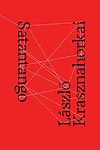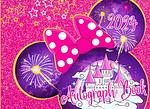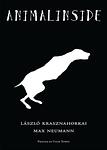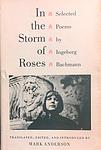The Greatest Hungarian, Austrian "Fiction" Books Since 1980
Click to learn how this list is calculated.
This list represents a comprehensive and trusted collection of the greatest books. Developed through a specialized algorithm, it brings together 300 'best of' book lists to form a definitive guide to the world's most acclaimed books. For those interested in how these books are chosen, additional details can be found on the rankings page.
Genres
Countries
Date Range
Reading Statistics
Click the button below to see how many of these books you've read!
Download
If you're interested in downloading this list as a CSV file for use in a spreadsheet application, you can easily do so by clicking the button below. Please note that to ensure a manageable file size and faster download, the CSV will include details for only the first 500 books.
Download-
1. The Piano Teacher by Elfriede Jelinek
"The Piano Teacher" is a dark exploration of power dynamics, sexuality, and repression. The story revolves around a piano teacher at a prestigious music school in Vienna who lives with her overbearing mother in a state of emotional and sexual repression. Her life takes a turn when she becomes sexually involved with a young, self-assured student. The relationship, marked by sadomasochistic games and emotional manipulation, spirals out of control, leading to a tragic end. The book is a profound critique of bourgeois values and the oppressive structures of society.
-
2. The Notebook: The Proof ; The Third Lie : Three Novels by Agota Kristof
"The Notebook: The Proof ; The Third Lie : Three Novels" is a trilogy of novels that follow the lives of twin brothers, living through the harsh realities of war, separation, and betrayal. The first novel, "The Notebook," tells the story of their survival as children in a rural town at the end of World War II. The second book, "The Proof," continues their story into adulthood, exploring the effects of their traumatic childhood. The final book, "The Third Lie," delves into the complexities of their relationship and the secrets they kept from one another. The trilogy is a poignant exploration of identity, love, and the enduring bond of brotherhood.
-
3. Extinction by Thomas Bernhard
"Extinction" is a novel that explores the dark and complex themes of family, identity, and history through the eyes of its protagonist, a professor living in Rome. When he receives news of the deaths of his parents and brother in a car accident, he is forced to confront his past and his Austrian heritage. The narrative delves into his thoughts and feelings, his criticisms of his family and society, and his philosophical musings on life and death, all while he prepares to return to his family's estate for the funeral. The novel is renowned for its dense, stream-of-consciousness style and its unflinching examination of the human condition.
-
4. Concrete by Thomas Bernhard
The book is a darkly introspective narrative that delves into the mind of a reclusive, obsessive intellectual who is struggling to complete his scholarly work on the composer Mendelssohn. As he grapples with his own ailments and the perceived mediocrity of his surroundings, the protagonist's stream-of-consciousness monologue reveals his deep-seated anxieties, self-loathing, and profound isolation. The narrative is a relentless examination of the protagonist's psyche, showcasing his critical view of society and his own personal relationships, which are fraught with tension and dysfunction. Through this, the novel explores themes of artistic creation, intellectual elitism, and the suffocating nature of expectations and familial obligations.
-
5. Woodcutters by Thomas Bernhard
Woodcutters is a darkly humorous critique of Vienna's artistic elite. The story takes place over the course of a single evening, as the narrator attends a dinner party in honor of a recently successful actor. As the evening progresses, he reflects on the pretentiousness and hypocrisy of the guests, the mediocrity of their artistic achievements, and the tragic suicide of his former lover. The novel is a scathing indictment of the vanity and self-delusion of the artistic community.
-
6. Celestial Harmonies by Peter Esterhazy
"Celestial Harmonies" is a historical novel that tells the story of the aristocratic Esterházy family, tracing their lineage from the late Middle Ages to the present day. The narrative is divided into two parts, with the first part featuring a series of vignettes about the family's ancestors, while the second part focuses on the experiences of the narrator's father under the Communist regime in Hungary. The novel is characterized by its intricate structure, complex themes, and lush, poetic language, offering a rich exploration of Hungarian history, family dynamics, and the human condition.
-
7. The Door by Szabó, Magda
"The Door" by Magda Szabo is a novel about the relationship between two women, one of whom is a writer and the other is her housekeeper. The story explores themes of class, power, and the complexities of human relationships. As the two women become increasingly intertwined, their relationship becomes more and more complicated, leading to unexpected consequences for both of them. The novel is a powerful exploration of the human condition, and a poignant reminder of the importance of understanding and empathy in our interactions with others.
-
8. Wittgenstein's Nephew by Thomas Bernhard
"Wittgenstein's Nephew" is a semi-autobiographical novel that explores the friendship between the narrator and his friend Paul, who is the nephew of the famous philosopher Ludwig Wittgenstein. The story takes place in Vienna and is set against the backdrop of the Austrian mental health system. The novel delves into themes of sanity, insanity, and the fine line that separates the two, while also offering a critique of Austrian society. It is a meditation on the nature of illness, both physical and mental, and the impact it has on personal relationships and one's perception of the world.
-
9. The Afternoon of a Writer by Peter Handke
"The Afternoon of a Writer" is a contemplative exploration of a day in the life of a solitary writer who, after a successful morning of writing, decides to take a walk through an unnamed European city. As he strolls, he grapples with feelings of alienation and existential dread, questioning his purpose and the worth of his work. The book delves into the writer's inner struggles, his observations of the world around him, and his reflections on the act of writing itself.
-
10. The Last World by Christoph Ransmayr
"The Last World" is a novel that reimagines the exile of the Roman poet Ovid in a remote village at the edge of the Black Sea. The story is set in a mythical time and place, where the villagers are haunted by strange transformations and echoes of Ovid's metamorphoses. The novel blurs the lines between the real and the imaginary, the past and the present, and the world of the living and the dead, creating a surreal and dreamlike atmosphere.
-
11. The Melancholy of Resistance by László Krasznahorkai
"The Melancholy of Resistance" is a surreal and philosophical novel set in a small Hungarian town that becomes isolated by a massive snowstorm. The arrival of a mysterious circus, featuring a stuffed whale and a silent, enigmatic leader, brings with it a wave of change and unrest. The narrative explores themes of chaos, resistance, and the struggle for power through the perspectives of various townsfolk, including a reclusive music theorist and a former political dissident. The novel is known for its complex, long-winded sentences and its bleak yet profound examination of human nature and society.
-
12. Lust by Elfriede Jelinek
This book is a provocative exploration of the dynamics of power and desire within the confines of a loveless marriage. Set against the backdrop of the Austrian Alps, it delves into the life of a woman trapped in a relationship with her abusive and unfaithful husband, a powerful paper mill owner. The narrative dissects the commodification of sex, the objectification of women, and the societal structures that perpetuate these themes. Through a stark and unflinching examination of the protagonist's degradation and the pervasive corruption in her world, the novel presents a scathing critique of consumerism, the patriarchy, and the hollow nature of modern relationships.
-
13. Satantango by László Krasznahorkai
"Satantango" is a bleak and atmospheric novel set in a small Hungarian village, where a group of desperate and disillusioned characters become entangled in a web of deception, corruption, and despair. As they navigate through the decaying landscape and their own inner demons, the novel explores themes of power, greed, and the human capacity for both cruelty and redemption. With its rich prose and intricate storytelling, "Satantango" offers a haunting and thought-provoking reflection on the human condition.
-
14. Helping Verbs Of The Heart by Peter Esterhazy
"Helping Verbs Of The Heart" by Peter Esterhazy is a thought-provoking and introspective novel that delves into the complexities of love and relationships. Through a series of interconnected stories and characters, the book explores the various ways in which love can shape and define our lives. With lyrical prose and deep emotional insight, Esterhazy examines the power of love to both heal and wound, and ultimately leaves readers pondering the profound impact that love can have on the human heart.
-
15. The Snows Of Yesteryear by Gregor von Rezzori
"The Snows of Yesteryear" is a memoir that explores the author's complex and tumultuous upbringing in Eastern Europe during the early 20th century. Through a series of vivid and poignant anecdotes, the book delves into the author's personal experiences with war, displacement, and the collapse of the Austro-Hungarian Empire, offering a deeply introspective and nostalgic reflection on the fleeting nature of time and the enduring impact of one's past.
-
16. Pete Pite by Gábor Nógrádi
"Pete Pite" is a children's book that follows the adventures of a young boy named Pete, who is known for his insatiable curiosity and inventive spirit. Living in a small village, Pete's inquisitive nature often leads him into amusing and sometimes challenging situations. With his trusty sidekick, a dog named Pite, Pete embarks on a series of escapades that teach him valuable life lessons about friendship, responsibility, and the importance of imagination. Through his experiences, Pete not only solves problems and helps his friends but also grows and learns about the world around him.
-
17. Für Elise by Szabó, Magda
The novel revolves around the life of a woman named Elise, who, after the death of her husband, discovers a series of letters that reveal hidden aspects of her marriage and her husband's past. As she delves into the contents of the letters, Elise is forced to confront the illusions and truths of her relationship, as well as her own identity. Set against the backdrop of a changing society, the story explores themes of love, betrayal, and the complex layers of human relationships, ultimately leading Elise on a poignant journey of self-discovery and redemption.
-
18. A Book Of Memories by Peter Nadas
"A Book of Memories" is a complex narrative that weaves together the lives of a young Hungarian intellectual, his friends, and lovers, set against the backdrop of Eastern Europe during the Cold War. The novel delves into themes of memory, history, and identity, exploring the protagonist's personal relationships and his struggle with his own sexuality. Rich in philosophical and psychological insights, the book is a tapestry of stories within stories, where the past and present intertwine, and characters search for meaning in a world marked by political turmoil and social change.
-
19. The Loser by Thomas Bernhard
"The Loser" is a philosophical novel that revolves around the complex relationship between three friends who are all piano virtuosos. The narrative is driven by the protagonist's obsession with his friend's suicide, which he believes was triggered by the realization that they could never surpass the genius of their third friend. The book delves into the protagonist's psyche as he grapples with themes of talent, ambition, failure, and the destructive power of comparison.
-
20. Jadviga Párnája by Pál Závada
"Jadviga Párnája" is a historical novel set in a Hungarian village at the turn of the 20th century. It delves into the life of a young woman named Jadviga, who is of Polish descent, and her marriage to a Hungarian man, András. The narrative unfolds through a series of letters, diary entries, and other documents, painting a vivid picture of rural life, social norms, and the personal struggles of the characters. The novel explores themes of love, fidelity, identity, and the complexities of human relationships against the backdrop of a society grappling with change and the influences of modernity.
-
21. The Book Of Fathers by Miklós Vámos
"The Book of Fathers" chronicles the lives of twelve generations of men from a Hungarian family, spanning over 300 years from the 18th century to the modern day. Each chapter focuses on one descendant, capturing the historical and personal challenges they face, from the rise and fall of empires to the intimate struggles of love and loss. The novel weaves a tapestry of Hungarian history and the family's legacy, marked by a mystical diary that is passed down from father to son, which possesses the power to influence the fate of its keeper. Through the generations, the book becomes a symbol of the family's heritage and the enduring connection between the past and the future.
-
22. Animalinside by László Krasznahorkai, Max Neumann
"Animalinside" is a haunting and surreal novella that delves into the mind of a narrator who becomes consumed by an animalistic alter ego. As the protagonist's thoughts and actions blur the line between human and animal, the narrative takes on a dark and disorienting tone, exploring themes of identity, violence, and the primal instincts that lie within us all. Through the collaboration of Krasznahorkai's mesmerizing prose and Neumann's striking illustrations, "Animalinside" offers a mesmerizing and thought-provoking exploration of the human psyche.
-
23. Gergő és Az álomfogók by Gyula Böszörményi
In this enchanting tale, a young boy named Gergő discovers a mysterious world of dream catchers who are responsible for protecting dreams from the nightmares that seek to disrupt them. As Gergő embarks on a thrilling adventure, he learns about the delicate balance between the dream world and reality, and the importance of confronting one's fears. With the help of new friends and his own courage, Gergő must navigate through this fantastical realm to ensure that the harmony of dreams is preserved for himself and others. Along the way, he gains insights into bravery, friendship, and the power of imagination.
-
24. In The Storm Of Roses by Ingeborg Bachmann
"In the Storm of Roses" is a collection of profound and evocative poems that delve into the complexities of human existence, exploring themes of love, loss, and the enduring human spirit amidst the backdrop of post-war Europe. The poet's masterful use of language and imagery weaves a tapestry of emotion and thought, inviting readers to contemplate the nature of reality, the pain of memory, and the possibility of redemption. Through a blend of personal introspection and universal resonance, the work captures the tumultuous journey of the soul seeking understanding and beauty in a fragmented and often harsh world.
-
25. állítsátok Meg Terézanyut! by Zsuzsa Rácz
"Állítsátok meg Terézanyut!" is a comedic novel that delves into the complexities of family life through the lens of Hungarian culture. The story centers around a middle-aged woman whose children have grown up and are leading their own lives, leaving her to navigate the challenges of an empty nest. As she attempts to maintain control over her family and their affairs, her overbearing nature leads to a series of humorous and heartwarming misadventures. The novel explores themes of motherhood, independence, and the evolving dynamics of familial relationships, all while offering a satirical look at the generational gaps and societal expectations within a modern family setting.
Reading Statistics
Click the button below to see how many of these books you've read!
Download
If you're interested in downloading this list as a CSV file for use in a spreadsheet application, you can easily do so by clicking the button below. Please note that to ensure a manageable file size and faster download, the CSV will include details for only the first 500 books.
Download


















